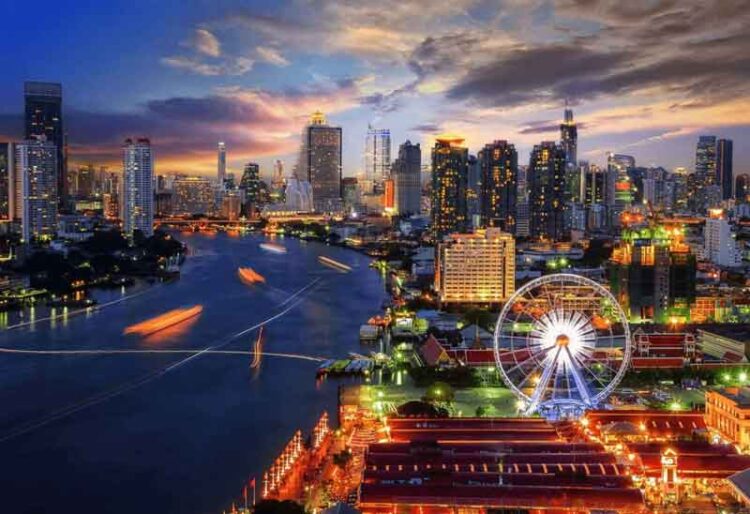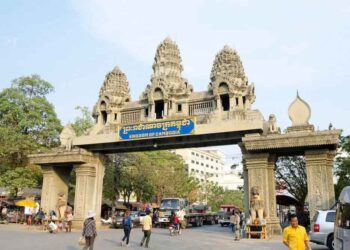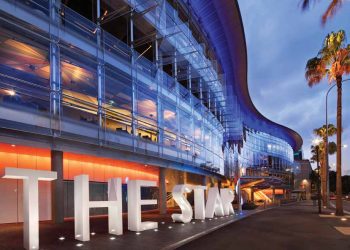Legalizing casino gaming within large-scale, multi-billion-dollar entertainment complexes – better known regionally as IRs – would allow Thailand to develop the world-class concert and sporting venues it currently lacks, the government explained during an official Press Briefing on Wednesday.
It also cited the opportunity to build “globally competitive attractions” such as museums, water parks and theme parks, and to make room for much-needed green space as important opportunities that could be addressed under the Entertainment Complex Bill currently working its way through parliament.
The Press Briefing was hosted in Bangkok by Julapun Amornvivat, Deputy Minister of Finance, and Suksit Srichomkwan, Deputy Secretary-General to the Prime Minister, who outlined their Thailand Entertainment Complex vision for a “global city of experiences”.
Such entertainment complexes, supported by the country’s first legal casinos, would enhance Thailand’s entertainment industry and attract international tourists – particularly during the traditional tourism “low season” – they explained.
“World-class indoor stadiums are crucial,” said Suksit, noting that existing venues such as Rajamangala and Suphachalasai Stadium were never designed to host concerts.
“A dedicated indoor venue could save costs like the THB6 million needed each time to re-lay Rajamangala’s turf. Plus, the stadium’s schedule often doesn’t align with global artists’ tour dates.”
These world-class stadiums and arenas would enrich Thailand’s sports and events landscape by supporting Muay Thai, esports and international-scale activities that draw global audiences, Suksit added.
Supporting infrastructure such as exhibition centers and large-scale arenas to host international events would help alleviate Thailand’s existing limitations when it comes to hosting global-scale shows, he said.
The government outlined its hope that entertainment complexes could incorporate attractions such as theme parks similar to Disneyland and Universal Studios to cater to families and young people seeking fresh experiences, as well as large-scale public and green spaces.
This could help alleviate the lack of green space in a city like Bangkok and support outdoor tourism through parks and public activity zones.
A business and startup hub would be developed to connect with the broader economy and help stimulate local SMEs.
In detailing its plans for large-scale entertainment complexes, the government acknowledged the need to progress with some haste in order to ensure the Entertainment Complex Bill is passed within the next two years of the current parliamentary term. If not passed by then, the bill will lapse.
If passed, the Prime Minister will chair a national committee to oversee the new law’s implementation, while operators will be selected based on public input, community consultation, and Request for Concept (RFC) and Request for Proposal (RFP) processes.
One feature that won’t be incorporated into entertainment complexes is online gambling, which is explicitly banned in the enabling legislation. Suksit said entertainment complexes bore no relationship to online gaming and the government will continue to crack down on illegal gambling websites moving forward.
He also confirmed plans to eradicate money laundering by recording and monitoring all transactions, stating, “Money laundering will be almost impossible in these premises … even the operators want to compete in a strictly regulated environment.”
Minimum investment for each entertainment complex would be set at THB100 billion (US$3 billion), with the government expecting average spend per visitor to the country can be increased from between THB6,000 and THB7,000 currently to as much as THB22,000.
Wednesday’s Press Briefing foreshadowed the Thailand Entertainment Complex Roundtable (TECR) taking place in Bangkok on Thursday, where global operators and opposing voices will come together to discuss Thailand’s efforts to legalize casino gaming within large-scale entertainment complexes.
“There will be a round table event organized by the private sector – TECR – wherein operators from abroad will come to share their perspective,” Suksit said. “I would like to invite everyone to attend and listen to this event to see what kind of investment vision each operator sees for Thailand. What are the specifics and what kinds of measures do they have in mind? You can reach out to them if you want more details but we’re already using that input to help shape the draft law.”




































